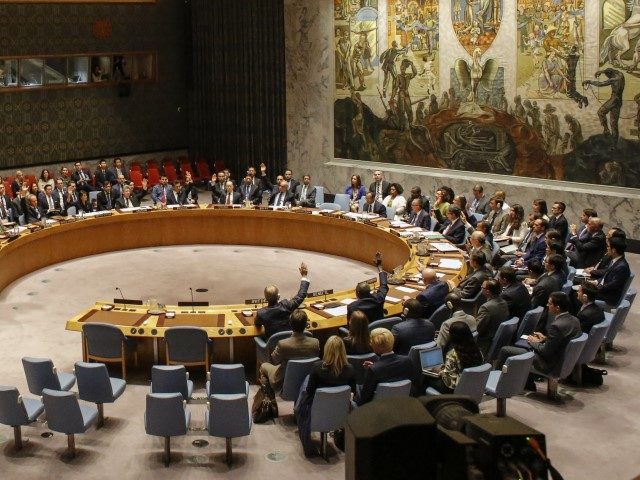Japan’s governing Liberal Democratic Party (LDP) on Thursday called for restrictions to the veto power of the five permanent members of the U.N. Security Council (UNSC).
The member uppermost on their minds was Russia, which has used its veto power to block resolutions condemning its own invasion of Ukraine.
The LDP drafted its first proposal to restrict veto powers on April 5, citing Ukrainian President Volodymyr Zelensky’s critique of the Security Council during an address to the Japanese parliament in March.
The final draft of the proposal submitted to Prime Minister Kishida Fumio on Thursday included plans to work with like-minded governments in Germany, Brazil, and India to restrict the veto powers of permanent UNSC members, increase the number of seats on the Council, and remove some elements of the U.N. Charter they find objectionable, such as the designation of Japan and Germany as “enemy states” from World War II.
Japan has argued for a permanent UNSC seat since the 1990s, pointing to its status as a major economic power and its rehabilitation from the imperial history that ended with World War II.
Prime Minister Kishida pressed the case for reform at a parliamentary meeting in March. He mentioned France as a possible ally for Japan’s efforts.
France, one of the five permanent Security Council members, has long sought to limit UNSC veto power in cases such as mass atrocities where urgent U.N. action is needed. France submitted a reform proposal along these lines in 2013 and has since suggested the five permanent members could voluntarily agree to refrain from using their vetoes without needing any changes to the U.N. Charter.
On Thursday, Japan announced it would co-sponsor a U.N. resolution proposed by Liechtenstein that would trigger an automatic meeting of the U.N. General Assembly whenever a Security Council member exercises its veto power.
Liechtenstein described its proposed resolution as a “meaningful step to empower the General Assembly and strengthen multilateralism.” The proposal has 38 co-sponsors, including the United States.
“We are particularly concerned by Russia’s shameful pattern of abusing its veto privilege over the past two decades, including its vetoes to kill a U.N. observer mission in Georgia, block accountability measures and chemical weapons investigations in Syria, prevent the establishment of a criminal tribunal on the downing of flight MH-17 over Ukraine, and protect President Putin from condemnation over his unprovoked and unjust war of choice against Ukraine,” said U.S. Ambassador Linda Thomas-Greenfield.
“The government believes permanent members should have utmost self-restraint in exercising veto rights in general,” Japanese Chief Cabinet Secretary Hirokazu Matsuno said when announcing Japan’s support for the measure.
The resolution does not single out Russia, but was rather clearly inspired by Russia’s veto of the resolution against its attack on Ukraine. The General Assembly voted last week to suspend Russia from the U.N. Human Rights Council, demonstrating an ability to complete actions that would be blocked at the Security Council by Russia’s veto.

COMMENTS
Please let us know if you're having issues with commenting.